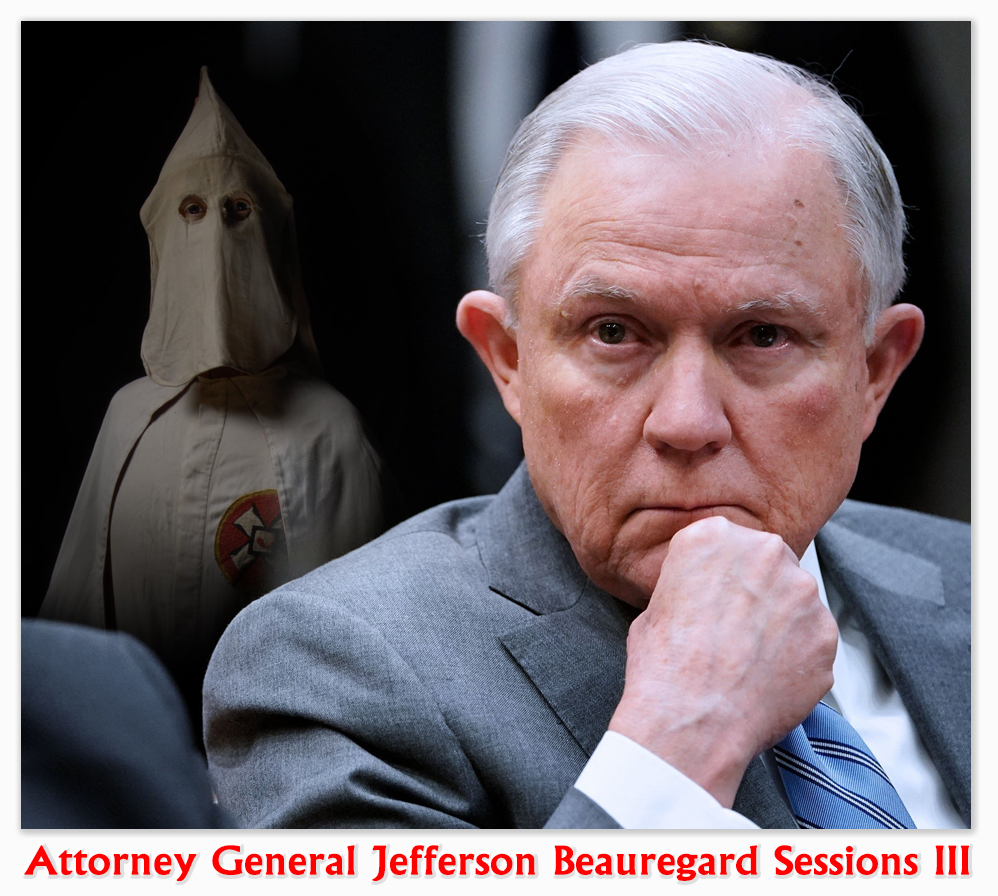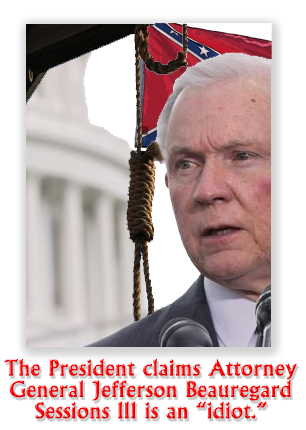We post news and comment on federal criminal justice issues, focused primarily on trial and post-conviction matters, legislative initiatives, and sentencing issues.

COTTON SAID TO HAVE NAMED HIS PRICE FOR SUPPORTING FIRST STEP
 If the modified FIRST STEP Act makes it to the floor of the Senate, a likelihood that is dimming day by day, Sen. Tom Cotton (R-Arkansas) has already staked out his price for abandoning his vitriolic opposition to the bill. Cotton and former Attorney General Jefferson Beauregard Sessions III, recently departed from DOJ, have been the most ardent foes of FIRST STEP and the Sentencing Reform and Corrections Act of 2017. Now, Sen. Cotton is the last man standing.
If the modified FIRST STEP Act makes it to the floor of the Senate, a likelihood that is dimming day by day, Sen. Tom Cotton (R-Arkansas) has already staked out his price for abandoning his vitriolic opposition to the bill. Cotton and former Attorney General Jefferson Beauregard Sessions III, recently departed from DOJ, have been the most ardent foes of FIRST STEP and the Sentencing Reform and Corrections Act of 2017. Now, Sen. Cotton is the last man standing.
Cotton has maintained his opposition to FIRST STEP — a sweeping package of criminal-justice reforms designed to reduce incarceration rates and recidivism — despite broad bipartisan support, even provoking a Twitter war yesterday with Sen. Mike Lee (R-Utah), a former federal prosecutor who strongly supports FIRST STEP and co-sponsored the doomed SRCA (which donated several provisions to the modified FIRST STEP).
In defending his opposition on Twitter yesterday, Cotton accused FIRST STEP’s proponents of trying to push the measure through Congress without allowing time for an adequate review of its contents, and warned that it would grant early release to fentanyl dealers, violent criminals and “criminal immigrants” (as though non-citizens convicted of felonies are not promptly deported after their sentences are completed). Lee accused Cotton’s criticisms of being “fake news.”
 It turns out that Cotton had a price, albeit it a high one, for remaining neutral on FIRST STEP. Ohio State University law professor Doug Berman wrote at his Sentencing Law and Policy Blog Sunday that Cotton previously offered to remain neutral or even support FIRST STEP if the bill were modified to (1) exclude heroin and fentanyl traffickers from early release for programming credits; (2) make the change from 47 to 54 days of good time non-retroactive; (3) adjust the weight of fentanyl under the drug trafficking statute (21 USC 841(b)) to reflect its potency; and (4) fix the Armed Career Criminal Act to undo the Johnson holding.
It turns out that Cotton had a price, albeit it a high one, for remaining neutral on FIRST STEP. Ohio State University law professor Doug Berman wrote at his Sentencing Law and Policy Blog Sunday that Cotton previously offered to remain neutral or even support FIRST STEP if the bill were modified to (1) exclude heroin and fentanyl traffickers from early release for programming credits; (2) make the change from 47 to 54 days of good time non-retroactive; (3) adjust the weight of fentanyl under the drug trafficking statute (21 USC 841(b)) to reflect its potency; and (4) fix the Armed Career Criminal Act to undo the Johnson holding.
Berman wrote that the proposals (except for a part of the first one) were rejected by FIRST STEP sponsors.
Meanwhile, the Democrats’ recapture of the House in the midterm elections complicates FIRST STEP’s chances. Many progressive Democrats and advocacy groups opposed the FIRST STEP Act in the House and insisted that it include stronger sentencing reforms. Many of those same lawmakers would like to see the sentencing reforms in the Senate version be made retroactive, something that would almost surely reignite conservative opposition to the bill.
 Sens. Cory Booker, D-New Jersey, and Kamala Harris, D-California, who are both running for president, have opposed criminal justice. Harris claims now to support reform, but she opposed it as California’s attorney general. Booker, who claims to support reform in principle, seems to be calculating whether its passage will help or harm his presidential campaign.
Sens. Cory Booker, D-New Jersey, and Kamala Harris, D-California, who are both running for president, have opposed criminal justice. Harris claims now to support reform, but she opposed it as California’s attorney general. Booker, who claims to support reform in principle, seems to be calculating whether its passage will help or harm his presidential campaign.
The Washington Examiner, however, predicted last week that “if Trump applies pressure, he will find that the numbers are there in Congress to defeat both Cotton’s faction and the Democrats in opposition – specifically, the ones blocking reform because it would hurt their own presidential bids if it passes during Trump’s presidency.”
Reason.com, Trump Endorses Criminal Justice Bill, Giving Momentum to Long-Delayed Reforms (Nov. 14, 2018)
Washington Examiner, Trump is right to embrace criminal justice reform (Nov. 15, 2018)
National Review, Mike Lee Accuses Tom Cotton of Spreading ‘Fake News’ on Criminal-Justice-Reform Bill (Nov. 19, 2018)
– Thomas L. Root












